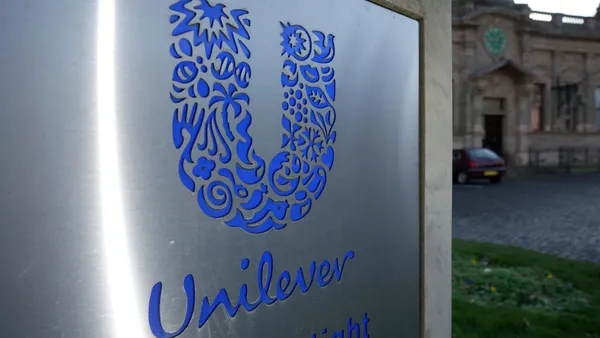The following is a guest post from Rebecca Coleman, founder and managing partner of Something Massive.
When you have a tween kid, you know you're in for some uncomfortable conversations. Most notably, "The Talk." Last night, it was my turn to suck it up and sit down to give my middle schooler a lesson he'll never forget... about social media.
I explained that a person's social media presence is not a popularity contest, but rather a platform for creativity, individuality and identity. "It is about what you want to say to the world and it is very important that you don't get caught up on the number of likes or comments each post gets. This is not a sign of your worth."
I don't usually like to bring my work home, but this mom lecture gave me a bout of déjà vu. Who else had I given this talk to recently? Oh, yeah: brand CMOs.
Having developed social media creative and content strategy for Fortune 500 companies — from beloved consumer packaged goods, to biotech devices, to celeb-backed fashion brands (man, even trampolines) — I can tell you that no matter the industry, a senior level executive has asked why a single post doesn't have more engagement. There are endless possible answers, including shifting algorithms that caused followers to never see the post, but the more important question is, why do likes matter so much?
Think bigger
Marketers love measurement. They want proof the creative is working, but if likes are lagging, the entire strategy is suddenly called into question. That type of reaction can cause an otherwise strategic group of professionals to think small. But thinking small never yields big results.
Social media has trained us to think and act in real time, and our expectations for instant gratification or ROI, aligns with this new behavior. What about the long game, creating a meaningful, loyal bond with customers over time? That type of relationship building requires brands to grow a thicker skin and weather some ups and downs (in measurement).
Just last year, Harvard Business Review published a study exploring the value of a like. "The results were clear: Social media doesn't work the way many marketers think it does. The mere act of endorsing a brand does not affect a customer's behavior or lead to increased purchasing, nor does it spur purchasing by friends."
So, why are we in this game if it's not about likes? If likes don’t work, what does?
Reframing your social channels
Social works to build your brand story and equity. People often find a brand's social media channels before they ever try the product. Websites are no longer the only entry point into a brand.
Consumers often search for brands on Facebook, Twitter or Instagram before typing in a URL. In other words, social channels are the new landing pages, each offering a different experience and doorway into a brand. Just like a website, not every single page (or post) is the most popular, but that doesn't mean it's without value or function. The pages (or posts) work in concert to provide a holistic brand experience. Think big, not small.
It's time to reframe your social channels not simply as a popularity contest, but as a brand platform for creativity, individuality and identity. (Sound familiar?)
Your social channels should:
- Establish your brand voice and personality.
- Showcase your product.
- Introduce your company culture, people and purpose.
- Define what your brand stands for.
- Explore your creativity and understanding of the medium.
- Let customers know you care about them.
The good news is that the HBR study showed there is a way to convert likes into meaningful behavior. It's called good, old-fashioned advertising. Yes, you have to pay, so it's not as appealing as those organic likes we're so fond of chasing, but it is more effective. If you're already making fantastic content for your channels, communicating products, services, creativity or brand values, you can easily repurpose your hard work into targeted advertising to drive conversions.
So, cut your social posts some slack. Not every one can win in popularity or conversions, and that's okay. Every brick has a place in supporting the overall function of the wall. As a marketer, don't get distracted by every brick, or you'll never build a house that will last a lifetime.












